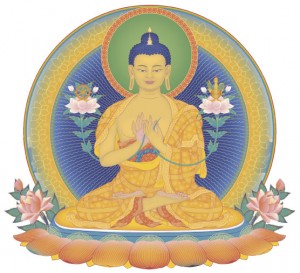Symbiotic mind
| Animals above a certain level of development require more than automatic
reflexes in order to survive. Advanced organisms need motivation and intention in order to
function in complex environments. Motivation and intention are chiefly driven by dukkha- the need to avoid suffering or unsatisfactoriness and the
restless but futile search for lasting happiness. Mental states such as suffering, unsatisfactoriness and pleasure are qualia. Such subjective experiences which carry strong immediate meanings do not exist in automata - mechanistic systems such as relay networks or computers. It is for this reason that complex animals have evolved neural structures which allow them to attract and capture minds. Fundamentally, it is the suffering and grasping of their minds - the need to avoid pain and seek pleasure - that provides the driving force for survival and reproduction of complex animals. In Buddhist philosophy the mind of a sentient being is not a product of biological processes, but something primordial which has existed since beginningless time and which will be drawn into another body once the present one has died. But in evolutionary terms, any adaptation or feature must have some selective benefit for the organism that possesses it. So what does the biological partner (the body) gain from the symbiotic association with mind? Obviously it will have an improved chance of surviving to propagate its genes over any mindless competitor which is not deterred by pain or motivated by pleasure. And what does the subtle mind gain? Usually little or nothing. When the life of the biological partner comes to an end, it has to endure suffering and then leave its home, being able to take nothing with it. It must then enter the nightmare state of the bardo and soon after find a new body. In Buddhist terminology these subtle minds are wanderers or migrators in samsara (the realm of perpetual death and rebirth). The only way that the mind can escape being endlessly captured and used by biological systems is to escape from the recurrent process of death, attraction to a body, and rebirth. Training in the Buddha's dharma is stated to be the path to individual liberation. In addition the bodhisattvas have vowed to rescue all migrators from their wanderings and bring them home to the Pure Lands. To find out how organisms had to evolve to capture minds, see the section on the Participatory Anthropic Principle. - Sean Robsville See also: RATIONAL
BUDDHISM
|
